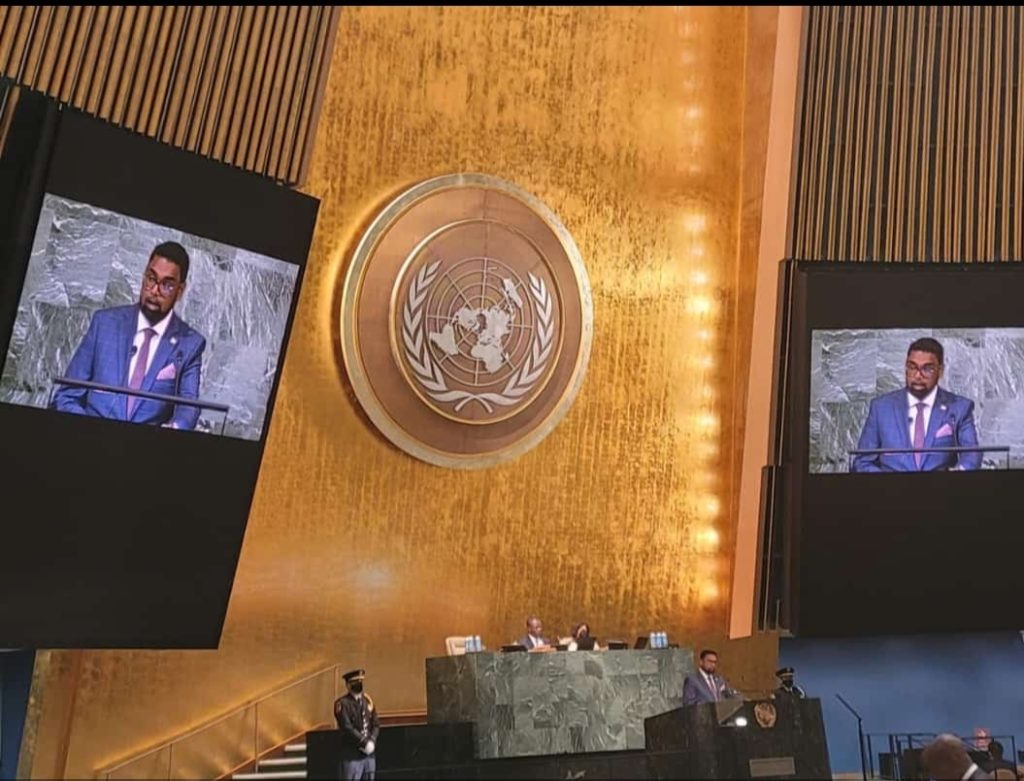
Pres. Ali advocates balance in energy transition; rejects punishing fossil fuel dependent countries
President Dr. Irfaan Ali on Wednesday urged world leaders to strike a balance in the global transition to renewable energy and said as countries continue on their individual path to net zero emissions by 2050, fossil fuel-dependent countries should not be punished in the process.
Delivering his address during the general debate of the 77th session of the United Nations General Assembly, Dr. Ali said the world is faced with an energy crisis that requires practical, comprehensive, and fact-based discussions to resolve.
Global electricity demand grew by six per cent in 2021 and by 2.4 per cent in 2022 of which only 50 per cent were met by renewables.
Analysis by the International Energy Agency (IEA) indicates that achieving net zero emission by 2050 would require a threefold increase in the current levels of investments in clean energy to US$4 trillion by 2030
To this end, Dr. Ali asked “how do we really strike this balance?”
He admits that adjustments must be made to save the planet but argued in Guyana’s stead, as a new oil-producing nation, that inequality and lack of access to resources should not be made to widen.
“In this transition, fossil fuel remains necessary. I am convinced that new entrants like Guyana must be part of a balanced approach,” he added.

Even as new entrant, Guyana proposed at COP 26 the removal of subsidies from fossil fuel production and advocated for a strong global carbon price.
Guyana through its Low Carbon Development Strategy is also preserving its forest which is currently the size of London.
Guyana is taking advantage of its natural resources in order to spur economic development. It does however face the predicament that so many others have faced before it which is balancing economic development through the exploitation of natural resources with environmental conservation.
It is a tricky balancing act that so many other countries have failed to pull off but Dr. Ali believes that Guyana is striking the right balance.
“I do not believe that new entrances should be punished by removing access and increasing the cost of financing. This will protect the existing monopoly and drive-up costs of investment.
“We are committed to building a Guyana that addresses issues of food security, climate change, energy security, and inequality,” he added.





